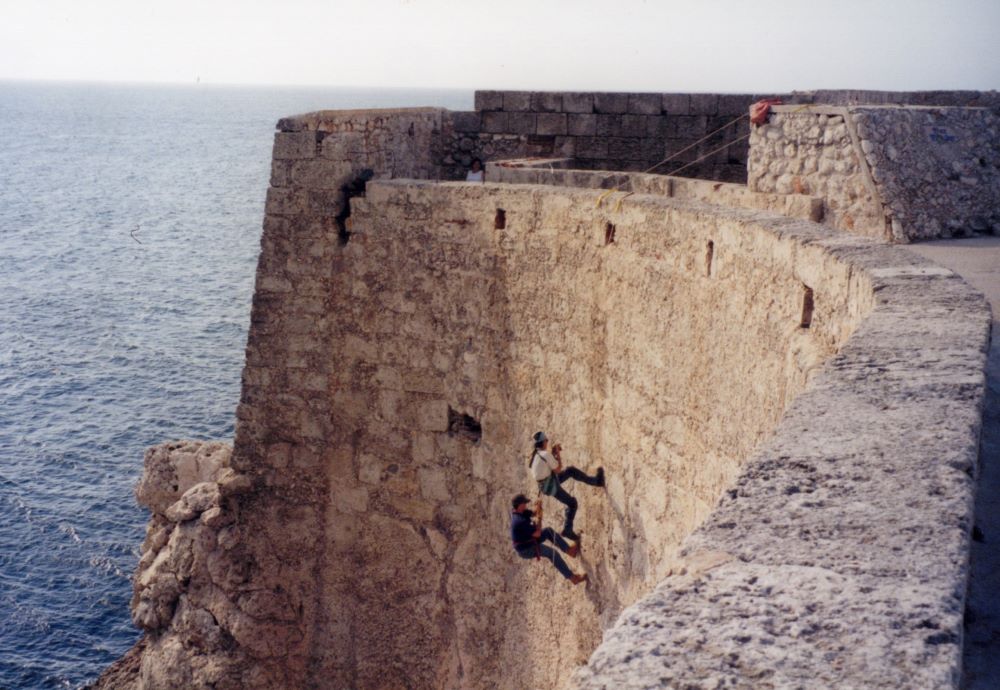As happens in most majority-poor countries dominated by authoritarian regimes, foreigners in Cuba often enjoy far more freedom than local citizens. To anyone familiar with Fidel Castro’s prior claims to have created the most anti-imperialist, socially just, and therefore “freest” country in the world, there was a palpable difference in the Special Period when the end of Soviet aid and the need for hard currency reversed foreign capitalists’ standing in government eyes: tourists, once condemned as parasites and ideological pariahs, suddenly transformed into socialist royalty. However, what tourists could get away with doing usually surprised Cubans more than the unparalleled accommodations they enjoyed. Few images better capture this idea than the sight of a pair of foreigners rappelling down the wall of El Morro Fortress—for fun and without government guides! HAVANA, JUNE 1995.
As this website nears its second year of exploration and reflection on Cuba’s lessons for the world, we also witness the continuing flight of more than half a million Cubans from the island for the United States. Since 2022, Cuba’s oldest-running Communist leaders—such as Raúl Castro, Ramiro Valdés, and others—have presided over a visibly consolidated crony-capitalist state defended by a tiny political elite and a massive security apparatus. Self-serving policies and recently decreed legal mechanisms for repressing dissent also reflect great historical irony: the very dictatorship of Fulgencio Batista that these leaders once overthrew has flourished anew. Given Cuba’s permanent state of crisis and the oddly stagnant policies of the last two US administrations, this Fotodiario edition of our website looks back at the Special Period, the post-Soviet era of the 1990s and early 2000s, that plunged all islanders into a watershed crisis of surreal proportions. Gems of the Archive and Ex-Libris celebrate UF’s acquisition of the Eduardo “Guayo” Hernández Collection, an incredible testament to the democratizing role of Cuba’s once-independent journalism. We hope this edition will invoke curiosity, knowledge, analysis, and the courage to debate and consider what kind of change might benefit the most Cubans among all of our Cuban Studies’ viewers
